4533-95-3
| 中文名 | 2-氯-5-硝基苯磺酰氯 |
|---|---|
| 英文名 | 2-Chloro-5-nitrobenzenesulfonyl chloride |
| 英文别名 |
1-chloro-2-chlorosulfonyl-4-nitrobenzene
EINECS 224-873-4 2-chloro-5-nitro benzene sulphonylchloride 5-nitro-2-chlorobenzenesulfonyl chloride 6-chloro-3-nitrobenzenesulphonyl chloride Benzenesulfonyl chloride,2-chloro-5-nitro 2-Chloro-5-nitro-benzenesulfonyl chloride |
| 密度 | 1.708 g/cm3 |
|---|---|
| 沸点 | 371.6ºC at 760 mmHg |
| 熔点 | 88-90ºC |
| 分子式 | C6H3Cl2NO4S |
| 分子量 | 256.06300 |
| 闪点 | 178.5ºC |
| 精确质量 | 254.91600 |
| PSA | 88.34000 |
| LogP | 3.77970 |
| 外观性状 | 淡棕色粉末 |
| 折射率 | 1.599 |
| 储存条件 | Hygroscopic, -20°C Freezer, Under Inert Atmosphere |
| 计算化学 | 1.疏水参数计算参考值(XlogP):2.4 2.氢键供体数量:0 3.氢键受体数量:4 4.可旋转化学键数量:1 5.互变异构体数量:无 6.拓扑分子极性表面积:88.3 7.重原子数量:14 8.表面电荷:0 9.复杂度:320 10.同位素原子数量:0 11.确定原子立构中心数量:0 12.不确定原子立构中心数量:0 13.确定化学键立构中心数量:0 14.不确定化学键立构中心数量:0 15.共价键单元数量:1 |
|
Section1. IDENTIFICATION OF THE SUBSTANCE/MIXTURE Product identifiers Product name: 2-chloro-5-nitrobenzenesulphonyl chloride CAS-No.: 4533-95-3 Relevant identified uses of the substance or mixture and uses advised against Identified uses: Laboratory chemicals, Manufacture of substances Section2. HAZARDS IDENTIFICATION Classification of the substance or mixture Classification according to Regulation (EC) No 1272/2008 [EU-GHS/CLP] Skin corrosion (Category 1B) Classification according to EU Directives 67/548/EEC or 1999/45/EC Causes burns. Label elements Labelling according Regulation (EC) No 1272/2008 [CLP] Pictogram Signal wordDanger Hazard statement(s) H314Causes severe skin burns and eye damage. Precautionary statement(s) P280Wear protective gloves/ protective clothing/ eye protection/ face protection. P305 + P351 + P338IF IN EYES: Rinse cautiously with water for several minutes. Remove contact lenses, if present and easy to do. Continue rinsing. P310Immediately call a POISON CENTER or doctor/ physician. Supplemental Hazardnone Statements According to European Directive 67/548/EEC as amended. Hazard symbol(s) R-phrase(s) R34Causes burns. S-phrase(s) S26In case of contact with eyes, rinse immediately with plenty of water and seek medical advice. S27Take off immediately all contaminated clothing. S28After contact with skin, wash immediately with plenty of water. S36/37/39Wear suitable protective clothing, gloves and eye/face protection. S45In case of accident or if you feel unwell, seek medical advice immediately (show the label where possible). Other hazards - none Section3. COMPOSITION/INFORMATION ON INGREDIENTS Substances Formula: C6H3Cl2NO4S Molecular Weight: 256,06 g/mol ComponentConcentration 2-chloro-5-nitrobenzenesulphonyl chloride CAS-No.4533-95-3- EC-No.224-873-4 Section4. FIRST AID MEASURES Description of first aid measures General advice Consult a physician. Show this safety data sheet to the doctor in attendance. If inhaled If breathed in, move person into fresh air. If not breathing, give artificial respiration. Consult a physician. In case of skin contact Take off contaminated clothing and shoes immediately. Wash off with soap and plenty of water. Consult a physician. In case of eye contact Rinse thoroughly with plenty of water for at least 15 minutes and consult a physician. If swallowed Do NOT induce vomiting. Never give anything by mouth to an unconscious person. Rinse mouth with water. Consult a physician. Most important symptoms and effects, both acute and delayed Cough, Shortness of breath, Headache, Nausea, Vomiting Indication of any immediate medical attention and special treatment needed no data available Section5. FIREFIGHTING MEASURES Extinguishing media Suitable extinguishing media Use water spray, alcohol-resistant foam, dry chemical or carbon dioxide. Special hazards arising from the substance or mixture Carbon oxides, nitrogen oxides (NOx), Sulphur oxides, Hydrogen chloride gas Advice for firefighters Wear self contained breathing apparatus for fire fighting if necessary. Further information no data available Section6. ACCIDENTAL RELEASE MEASURES Personal precautions, protective equipment and emergency procedures Use personal protective equipment. Avoid dust formation. Avoid breathing vapors, mist or gas. Ensure adequate ventilation. Evacuate personnel to safe areas. Avoid breathing dust. Environmental precautions Do not let product enter drains. Methods and materials for containment and cleaning up Pick up and arrange disposal without creating dust. Sweep up and shovel. Keep in suitable, closed containers for disposal. Reference to other sections For disposal see section 13. Section7. HANDLING AND STORAGE Precautions for safe handling Avoid formation of dust and aerosols. Provide appropriate exhaust ventilation at places where dust is formed.Normal measures for preventive fire protection. Conditions for safe storage, including any incompatibilities Store in cool place. Keep container tightly closed in a dry and well-ventilated place. Specific end uses no data available Section8. EXPOSURE CONTROLS/PERSONAL PROTECTION Control parameters Components with workplace control parameters Exposure controls Appropriate engineering controls Handle in accordance with good industrial hygiene and safety practice. Wash hands before breaks and at the end of workday. Personal protective equipment Eye/face protection Face shield and safety glasses Use equipment for eye protection tested and approved under appropriate government standards such as NIOSH (US) or EN 166(EU). Skin protection Handle with gloves. Gloves must be inspected prior to use. Use proper glove removal technique (without touching glove's outer surface) to avoid skin contact with this product. Dispose of contaminated gloves after use in accordance with applicable laws and good laboratory practices. Wash and dry hands. The selected protective gloves have to satisfy the specifications of EU Directive 89/686/EEC and the standard EN 374 derived from it. Body Protection Complete suit protecting against chemicals, The type of protective equipment must be selected according to the concentration and amount of the dangerous substance at the specific workplace. Respiratory protection Where risk assessment shows air-purifying respirators are appropriate use a full-face particle respirator type N100 (US) or type P3 (EN 143) respirator cartridges as a backup to engineering controls. If the respirator is the sole means of protection, use a full-face supplied air respirator. Use respirators and components tested and approved under appropriate government standards such as NIOSH (US) or CEN (EU). Section9. PHYSICAL AND CHEMICAL PROPERTIES Information on basic physical and chemical properties a) AppearanceForm: solid b) Odourno data available c) Odour Thresholdno data available d) pHno data available e) Melting point/freezingno data available point f) Initial boiling point and no data available boiling range g) Flash pointno data available h) Evaporation rateno data available i) Flammability (solid, gas) no data available j) Upper/lowerno data available flammability or explosive limits k) Vapour pressureno data available l) Vapour densityno data available m) Relative densityno data available n) Water solubilityno data available o) Partition coefficient: n- no data available octanol/water p) Autoignitionno data available temperature q) Decompositionno data available temperature r) Viscosityno data available s) Explosive propertiesno data available t) Oxidizing propertiesno data available Other safety information no data available Section10. STABILITY AND REACTIVITY Reactivity no data available Chemical stability no data available Possibility of hazardous reactions no data available Conditions to avoid no data available Incompatible materials Strong oxidizing agents Hazardous decomposition products Other decomposition products - no data available Section11. TOXICOLOGICAL INFORMATION Information on toxicological effects Acute toxicity no data available Skin corrosion/irritation no data available Serious eye damage/eye irritation no data available Respiratory or skin sensitization Prolonged or repeated exposure may cause allergic reactions in certain sensitive individuals. The preceding data, or interpretation of data, was determined using Quantitative Structure Activity Relationship (QSAR) modeling. Germ cell mutagenicity no data available Carcinogenicity IARC:No component of this product present at levels greater than or equal to 0.1% is identified as probable, possible or confirmed human carcinogen by IARC. Reproductive toxicity no data available Specific target organ toxicity - single exposure no data available Specific target organ toxicity - repeated exposure no data available Aspiration hazard no data available Potential health effects InhalationMay be harmful if inhaled. Material is extremely destructive to the tissue of the mucous membranes and upper respiratory tract. IngestionMay be harmful if swallowed. Causes burns. SkinMay be harmful if absorbed through skin. Causes skin burns. EyesCauses eye burns. Signs and Symptoms of Exposure Cough, Shortness of breath, Headache, Nausea, Vomiting Additional Information RTECS: Not available Section12. ECOLOGICAL INFORMATION Toxicity no data available Persistence and degradability no data available Bioaccumulative potential no data available Mobility in soil no data available Results of PBT and vPvB assessment no data available Other adverse effects no data available Section13. DISPOSAL CONSIDERATIONS Waste treatment methods Product Offer surplus and non-recyclable solutions to a licensed disposal company. Contact a licensed professional waste disposal service to dispose of this material. Dissolve or mix the material with a combustible solvent and burn in a chemical incinerator equipped with an afterburner and scrubber. Contaminated packaging Dispose of as unused product. Section14. TRANSPORT INFORMATION UN number ADR/RID: 3261IMDG: 3261IATA: 3261 UN proper shipping name ADR/RID: CORROSIVE SOLID, ACIDIC, ORGANIC, N.O.S. (2-chloro-5-nitrobenzenesulphonyl chloride) IMDG: CORROSIVE SOLID, ACIDIC, ORGANIC, N.O.S. (2-chloro-5-nitrobenzenesulphonyl chloride) IATA:Corrosive solid, acidic, organic, n.o.s. (2-chloro-5-nitrobenzenesulphonyl chloride) Transport hazard class(es) ADR/RID: 8IMDG: 8IATA: 8 Packaging group ADR/RID: IIIMDG: IIIATA: II Environmental hazards ADR/RID: noIMDG Marine pollutant: noIATA: no Special precautions for user no data available Section15. REGULATORY INFORMATION This safety datasheet complies with the requirements of Regulation (EC) No. 1907/2006. Safety, health and environmental regulations/legislation specific for the substance or mixture no data available Chemical Safety Assessment no data available Section16. OTHER INFORMATION Further information Copyright 2012 Co. LLC. License granted to make unlimited paper copies for internal use only. The above information is believed to be correct but does not purport to be all inclusive and shall be used only as a guide. The information in this document is based on the present state of our knowledge and is applicable to the product with regard to appropriate safety precautions. It does not represent any guarantee of the properties of the product. Corporation and its Affiliates shall not be held liable for any damage resulting from handling or from contact with the above product. See and/or the reverse side of invoice or packing slip for additional terms and conditions of sale. |
| 危害码 (欧洲) | C |
|---|---|
| 危险品运输编码 | 3261.0 |
| 危险类别 | 8.0 |
| 海关编码 | 2904909090 |
|
~54% 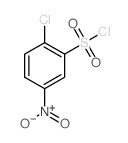
4533-95-3 |
| 文献:AXIKIN PHARMACEUTICALS, INC.; LY, Tai, Wei; TRAN, Marie Chantal, Siu-ying; BAAUM, Erik, Dean Patent: WO2010/123956 A2, 2010 ; Location in patent: Page/Page column 106-107 ; WO 2010/123956 A2 |
|
~97% 
4533-95-3 |
| 文献:Fujita, Shinsaku Synthesis, 1982 , # 5 p. 423 - 424 |
|
~% 
4533-95-3 |
| 文献:Guidi, Antonio; Dimoulas, Tula; Giannotti, Danilo; Harmat, Nicholas Patent: US2008/275023 A1, 2008 ; Location in patent: Page/Page column 7 ; US 20080275023 A1 |
|
~79% 
4533-95-3 |
| 文献:Shaw, Antony N.; Tedesco, Rosanna; Bambal, Ramesh; Chai, Deping; Concha, Nestor O.; Darcy, Michael G.; Dhanak, Dashyant; Duffy, Kevin J.; Fitch, Duke M.; Gates, Adam; Johnston, Victor K.; Keenan, Richard M.; Lin-Goerke, Juili; Liu, Nannan; Sarisky, Robert T.; Wiggall, Kenneth J.; Zimmerman, Michael N. Bioorganic and Medicinal Chemistry Letters, 2009 , vol. 19, # 15 p. 4350 - 4353 |
|
~% 
4533-95-3 |
| 文献:ANADYS PHARMACEUTICALS, INC. Patent: WO2007/150001 A1, 2007 ; Location in patent: Page/Page column 54; 112 ; |
| 上游产品 5 | |
|---|---|
| 下游产品 10 | |
| 海关编码 | 2904909090 |
|---|---|
| 中文概述 | 2904909090 其他烃的磺化、硝化、亚硝化衍生物(不论是否卤化). 增值税率:17.0% 退税率:9.0% 监管条件:无 最惠国关税:5.5% 普通关税:30.0% |
| 申报要素 | 品名, 成分含量, 用途 |
| Summary | HS:2904909090 sulphonated, nitrated or nitrosated derivatives of hydrocarbons, whether or not halogenated VAT:17.0% Tax rebate rate:9.0% Supervision conditions:none MFN tariff:5.5% General tariff:30.0% |


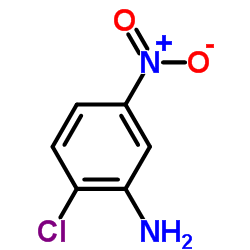
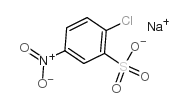
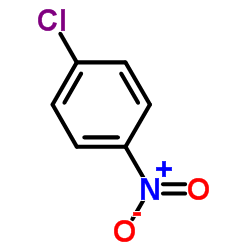
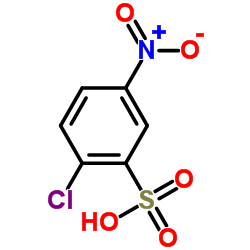
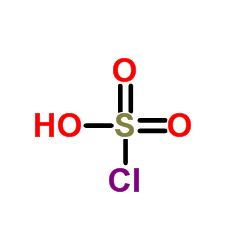
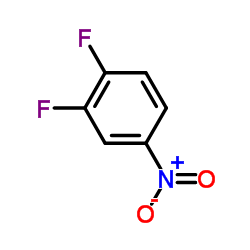
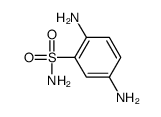

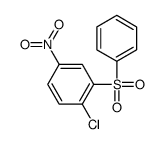

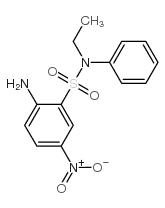
![{7-[(Methylsulfonyl)amino]-1,1-dioxido-2H-1,2,4-benzothiadiazin-3 -yl}acetic acid结构式](https://image.chemsrc.com/caspic/217/1000313-20-1.png)


